It’s Oscars Sunday, God help us, and while I’ll not be watching the increasingly fatuous awards show (especially after last year’s Slap Heard 'Round the World), I thought I’d take the opportunity to finalize my own Best List in movies, rather than review the official nominations. After all, with Top Gun: Maverick, Avatar: The Way of Water, and Elvis all getting nods, you might’ve mistaken the Academy’s list as the worst pictures of the year. And in truth, 2022 was one of the weakest for film since I’ve been keeping track, with poor showings by many of the most anticipated titles.
Still, if you were willing to sift through a lot of crap and mediocrities, a few gold nuggets stood out. What follows is a completely objective, totally inarguable, utterly definitive list of the ten best movies of last year, with short capsule reviews or links to longer ones I wrote. Despite the compounding commercial and cultural pressures that the art form’s under, movies still have the capacity to move us to awe and wonder. These ten did for me, and I hope for you.
Best Pictures
10. Down With the King
Coming in at the tenth spot is Down With the King, a small unconventional picture from French director Diego Ongaro. It stars Freddie Gibbs as a rapper with the alliterative name “Money Merc” Maxwell, who finds himself going through a quiet mid-life crisis while staying at a house in the Berkshires of western Massachusetts. His record label’s sent him there to recuperate after burning out from the celebrity limelight. But as his manager, Paul (David Krumholtz), makes clear, they also expect him to produce another hit record while he’s there. That’s a problem, as Merc (obviously based on Gibbs himself) struggles to take pleasure in his music while falling in love with life on a nearby farm, where he lends a hand to its salt-of-the-earth proprietor (Bob Tarasuk).
This is a most unusual fish-out-of-water story, conjuring a felt contrast between the hushed tranquility of the autumnal setting and the vivaciousness and urban sensibility of its main character. The way Merc brings his street persona so unabashedly and authentically to country life arrests your attention, and Gibbs’s charisma floods the frame with each shot. A character study, the film softly draws out the troubled backstory of its protagonist as he interacts with his mother (Sharon Washington) and the locals (who find him a breath of fresh air). Jamie Neumann gives an unaffected performance as an employee at a hardware store drawn to Merc, matching him in her easy self-possession. Meanwhile, Krumholtz and Gibbs share some sharp, grounded scenes with the musician’s crew that capture the improvisatory quality of rap. Down With the King slipped past most audiences, but in its vision of a rough masculine figure who finds healing among animals and nature, it bears affinity to The Mustang, from 2019. It’s a tiny gem.
9. Argentina, 1985
In Argentina, 1985, Ricardo Darín—a legend in that South American country—plays a suave prosecutor pursuing a murder case against the backdrop of the “dirty war” of the 1970s. You’d be forgiven for asking if that isn’t the same character he portrayed in The Secret in Their Eyes, the brilliant mystery-romance from 2009. In the person of Julio Strassera, he exudes similar traits, and the movie as a whole shares its predecessor’s handsome classic look. Strassera was tasked with prosecuting nine officers of the military high command, who carried out a brutal campaign of kidnapping, torture, and atrocities as part of the ruling junta. The trial became an international cause célèbre.
As in The Secret in Their Eyes, Darín holds the screen with his svelte body and cool persona; he’s impossibly smooth (especially under the suits the costume designers put him in) and the movie reproduces the quick banter and hard-boiled office humor of the 2009 picture. Indeed, given its subject matter, it surprises you with its comic tone and lightness of mood. Strassera’s isolated from the get-go, as almost every other member of the legal establishment supported the dictatorship (in one funny scene, he and his theater director friend rate his fellow lawyers by level of fascism). So he ends up hiring a bunch of scrappy kids fresh out of law school (and even high school) to serve as his paralegals instead. They’re led by an idealistic deputy prosecutor named Luis Moreno Ocampo (Peter Lanzani) who’s become a traitor to his military family. Director Santiago Mitre keeps the narrative and compositions flowing from one seamless scene to the next, and draws fine performances from the ensemble.
The movie could’ve done with raising the stakes more for its main character; you need to feel the cost to Strassera and the danger he was in. And it fails to examine the psychology of evil through a deeper focus on the officers (as with Ben Kingsley’s Adolf Eichmann in Operation Finale, from 2018) or the moral gray area of collaboration. But it finds the needed gravitas during the harrowing testimony of the regime’s victims and in Strassera’s closing argument. The dignity of the actors playing the poor, brutalized citizens—combined with Darín’s stirring valediction—does a real number on you. It’s one of the finest courtroom dramas in a while.
8. Thirteen Lives
Ron Howard’s Thirteen Lives chronicles the improbable 2018 rescue of twelve young soccer players and their coach from the Tham Luang caves in Thailand. The story captivated the world for nearly twenty days, and Howard sustains a white-knuckle energy through two and a half hours. Along the way, he plunges you into the claustrophobic perspective of the crack amateur divers who pulled off a feat of staggering proportions. Colin Farrell and Viggo Mortensen play the Brits John Volanthen and Rick Stanton, respectively, who lead the squad, joined by Chris Jewell (Tom Bateman), Jason Mallinson (Paul Gleeson), and, eventually, the Aussie Hary Harris (Joel Edgerton). With their all-business attitude and emotional reserve—born both of their culture and their trade—these men are models of stoicism. But they’ve never met a challenge quite like this.
In its theme—the collective ingenuity and steely nerves of men in extremis—Thirteen Lives bears affinity to Howard’s Apollo 13. But the director far and away surpasses his 1995 picture; where the former delivered a straightforward portrayal of heroism, the latter gives us a much more complicated portrait of courage under life-and-death pressure. The spelunkers are so fixated on their mission that, like the audience, they don’t realize the physical and psychological dam building up in them until the end. So when they bring it to a successful result—through a procedure that truly beggars belief—they’re not prepared for the flood of painful feelings that’s released. Neither are you, and the picture upsets you in ways it’s hard to get at. This is a triumph-of-the-spirit film that, paradoxically, leaves you in swirling emotional cross-currents.
The cast—including the many Thai actors—are focused and hew to the action. You wish Howard would draw the characters a bit more fully, actually, along with divulging how the boys endured so long with little food and water (all we get is a brief shot of their coach leading them in meditation). The film successfully showcases the tension between the government and the foreign divers, though, and the epic lengths people went to the world over to save a mere baker’s dozen lives—including peasants who diverted thousands of gallons of water from the caves and into their own rice fields. In this, the film makes for a welcome contrast to Free Solo, the disturbing 2018 documentary about a rock climber who’s anomic psyche (he’s somewhere on the autism spectrum) ceaselessly drives him away from relationships through his deadly obsessive-compulsive avocation. With its riveting depiction of how millions of strangers sacrificed everything to restore a few children to their families, Thirteen Lives reveals our true human nature: made for cooperation and solidarity.
7. The Phantom of the Open
The Phantom of the Open is a charming British comedy that came and went with barely a peep last summer, despite starring Mark Rylance and Sally Hawkins. Its young director, Craig Roberts, has mostly acquitted himself as an actor in forgettable movies like The Fundamentals of Caring (2016). But here he displays a robust, sophisticated aesthetic sensibility that's striking for its confidence. Rylance plays Maurice Flitcroft, a working-class bloke from northern England who made waves in 1976 when he tried, at 47, to qualify for the British Open without ever having picked up a golf club in his life. He subsequently shot the highest round in tournament history, earning accolades as “world’s worst golfer” and becoming a minor celebrity. Hawkins plays his faithful wife, Jean, who never doubts her husband’s dubious endeavors on the links.
Roberts, working from a script by Simon Farnaby (based on Farnaby’s biography of Flitcroft) tells the story as a fairy tale mixed with low-comic devices. It flips the sports genre on its head, celebrating the reverie, zest, and doggedness of its quirky anti-hero and the zany trail he blazes. Rylance adopts the driest of affects for Maurice, yet the man’s wonder and child-like sparkle shine through his delightful tweed. Maurice discovers golf while watching on TV, and Roberts suddenly transports his characters to a theatrical soundstage and sends them flying through the stars like a picture book. Maurice’s got three sons, two of whom (real life twins Christian and Jonah Lees) share their father’s performative streak as competitive disco dancers. The eldest, Mike, does not, though, working as a mid-level executive and expressing embarrassment at his father’s behavior. Hawkins turns in another in a string lovely performance (in keeping with the Paddington movies and 2016’s Maudie); her Jean locates a mix of mild befuddlement and affection for Maurice’s athletic exploits, which sets the tone of the picture.
The movie channels the oddball, off-kilter British humor that roots itself in an endearing eccentric. Along the way, it works in the sweetness and whimsy of the country’s fantastical tradition. Like its protagonist, it asks you to stop worrying and learn to love the silly, utterly hapless quality that attends us sops when we apply ourselves to skilled crafts. It’s hard to say exactly how this picture wins you over, but its warmth and spirit are irrepressible—much like Maurice.
6. Aftersun
Charlotte Wells’s memory film about a Scottish man and his daughter on holiday features a tender, mournful performance from Paul Mescal. Full review here.
5. Marcel the Shell With Shoes On
Yes, I’m serious! American director Dean Fleischer Camp has transferred his titular character from a series of YouTube shorts into the sweetest of features, combining stop-motion and live-action in an innovative, luminous breakthrough. Jenny Slate, who helped write the story along with Nick Paley, reprises as Marcel, and it’s her vocal acting that suffuses the picture with such gentleness and humor. The film works in the style of mockumentaries, with Camp playing a version of himself—a documentary filmmaker who moves into an AirBnB in Los Angeles only to discover Marcel, a one-inch snail, living there with his grandmother, Nana; Alan, his pet ball of lint; and a dog that exasperates the hell out of them. The interplay between Marcel and Dean is quite dear and often funny, such as when the crustacean slyly commandeers his camera and turns it on him.
The film takes Marcel’s point of view; we see the world through his pipsqueak body and are treated to an endlessly inventive series of camera angles to convey the lifeworld of its vertically-challenged protagonist. Dean documents Marcel as if he’s an animal in the wild, following him as he deploys household objects to catapult himself, literally, up and down and all around. After Dean uploads the clips to the Web, Marcel goes viral, the movie playing off the real-world internet fandom of its character. Marcel possesses a sheepish innocence that comes through in his observational stream of consciousness. Slate lends him a slightly tremulous voice, and the snail gives us the experience of discovering the world as if for the first time, like an infant.
Marcel possesses an eye for the beauty of the present moment and the everyday. But he’s also lonely and grieved, having lost most of his relatives when their previous owner moved out after breaking up with his girlfriend, inadvertently packing the snail kin off with him. Marcel hopes his social media followers can help find them, a task Dean assists in. Meanwhile, the snail tries to support Nana, who’s slipping into dementia. When Dean learns that the pair bonds over Lesley Stahl and 60 Minutes, he writes into the show to see if they’ll feature Marcel and his missing family on its program. This creates turmoil for the snail, who’s sensitive and private, fiercely protective of his grandmother.
But even as he learns that the world is a grander, richer place than he ever imagined, so Marcel draws on his miniature heart to step out boldly into it. The movie delights you in its lyrical editing, its effulgent visuals expressing the painfully poetic quality of the world. We’re passengers along for the ride, and with Marcel narrating, we see life in all its loss and light.
4. To Leslie
I’m not going to weigh in on the controversy surrounding the Oscar push behind To Leslie, the debut of English director Michael Morris, partly because I haven't followed it and mostly because it sounds manufactured and dumb. The Academy Awards are all politics anyway, and every contender has an unsavory pressure campaign at its back (as the The New York Times just wrote up). None of that matters when it comes to assessing the quality of a movie, and Morris has turned in an affecting melodrama on the strength of a first-rate script from Ryan Binaco. Andrea Riseborough stars as Leslie Rowland, a real woman from west Texas who won the lottery only to squander the fortune on booze and drugs. Six years later, she’s down and out, crashing with her twenty-something son, James, (a very fine Owen Teague), until he expels her for stealing his cash and lying about finding a job.
Things go from bad to worse when she tries to impose on two ex-friends, Dutch (Stephen Root), and Nancy (Allison Janney), only to be thrown out of their place after she goes drinking at a bar and is spotted by another former acquaintance. She winds up sleeping on a deserted highway next to a motel, whose owner, Sweeney (Marc Maron) notices her and decides to take pity on the poor soul. To her astonishment (and his), he offers her a job as a maid, against the advice of his colleague, Royal (Andre Royo), who lives on the premises with him. Sweeney’s recovering from his own life quakes after his wife left him, we come to find out, and you see him trying to salvage that previous relationship through his outreach to Leslie. The man exudes a decency and trust for her that take her aback, especially in light of her repeated self-sabotage. His belief in her runs against her self-loathing, and whether she can overcome the latter and rebuild her life makes for the movie’s key conflict.
There are so many landmines a filmmaker can step on with material like this, and most movies would wring the soppiest milk from it. But much like his protagonist, Morris succeeds against all odds, turning in a picture that avoids the pitfalls of its genre and gives us characters with flesh and blood. He directs the actors with subtlety and depth, and the film possesses an uncommon generosity of spirit. It refuses to judge anyone, even at their worst: such as when the townsfolk—Nancy, Dutch, and others—belittle Leslie in public and when she throws Sweeney’s kindness back in his face. The movie rides especially on the performances of Riseborough and Janney; their scenes together crackle with authenticity, the actors sidestepping every ham-bone there is (easy to do with such backcountry characters) and conveying their wounded integrity. Leslie’s hurt herself and everyone so much that any love that once existed now manifests as hot anger. In this way, the movie gets at how small-town life can simultaneously trap you in past failures and offer you a homecoming like no place else.
Somehow, Morris and the cast resist every indulgent impulse; they refuse to render these people as embittered has-beens or one-dimensional white trash. As Sweeney, Maron turns in a grounded performance that piques your interest; his devotion to Royal—who carries a mad-dog shamanic quality—is what finally wins Leslie’s trust. He missteps slightly (and unrealistically) when he shows her a video clip of when she won the lotto; it’s hard to believe he wouldn’t anticipate the pain this dredges up in her. But it’s a small blemish on an otherwise admirable picture. This is a redemption story that goes for genuine emotion in a genre replete with cheap sentimentality. A scene in a bar near the end—when a hunky guy tries to pick up Leslie, only to be taken into fraught emotional terrain by her in a few words—is a master class from Riseborough. And in its embrace of an essentially conservative corner of America—while showing that community, not lucre, is what saves us—it’s a balm for our polarized times.
3. Breaking
The young American Abi Damaris Corbin’s directorial debut, Breaking, is not one you’ll soon forget. Like Dog Day Afternoon (1975), it turns a hostage thriller into a hard-hitting social problem picture that subverts your expectations. In so doing, it captures the failure of the American dream like the plays of Odets, O’Neill, and Miller. The cast is impeccable, and John Boyega turns in a performance worthy of a young Denzel Washington. Full review here.
2. The Batman
I know—a comic-book blockbuster takes the silver medal? Yes. Despite its overly long proceedings, Matt Reeves’s reinvention of the Caped Crusader is a titanic aesthetic work. Through the stellar performance of his creative team, pop becomes art in this pulp-grunge saga. Full review here.
1. Living
Oliver Hermanus is a South African director previously unknown to me. But with Living, his adaptation of Akira Kurosawa’s 1952 Ikiru, he has made a masterpiece that matches and even improves upon the Japanese original. With its sumptuous visuals, inimitable acting, and overwhelming emotion, its sweeps you away in its wake. It’s hands-down the best picture of 2022. The story is almost parabolic in its simplicity, akin to the neorealist pictures of 1930s. Rodney Williams (Bill Nighy) is a senior bureaucrat in London’s postwar civil service, overseeing a department of three other functionaries and their secretary, Margaret Harris (Aimee Lou Wood). We meet them through the eyes of Peter Wakeling (Alex Sharp), a new hire who joins the men in their bowlers and pinstripe suits as they await the morning train on his first day. They greet him with grim visages, outdone only by the buttoned-down imperiousness of Williams when he at last appears. Peter, young and fresh faced, attempts small talk, but his colleagues warn him not to crowd their supervisor, who doesn’t even join them in their berth on their daily commute.
At the office, the department shares a cramped office, the desks piled high with towers of paperwork. The men literally shuffle the documents between files, with barely a word passing between them. Rodney, the definition of a stiff-upper lip, keeps his eyes downcast at all times, speaking with a whisper of a voice. The atmosphere’s suffocating in its cobwebbed dustiness. When a group of working-class mums arrive with a petition to transform a dingy lot behind their tenement into a playground, the pencil-pushers in city hall pass the buck between them like absurd fossils, driving the women to the brink.
All this changes when Williams receives news from his physician: he has terminal cancer, with mere months to live. The diagnosis breaks on him like a revelation; he awakens to how ossified he’s become. He embarks on a series of episodes to come to terms with his fate, first in Brighton, where he confides in a dashing writer named Sutherland (Tom Burke). He tells the man of his illness and that he’s contemplated suicide, producing bottles of pills to prove it. Moved by the older man’s vulnerability, Sutherland vows to give him a night on the town, leading him into its vaudeville haunts and red-light pleasures. But the attempt at hedonic catharsis backfires—Rodney requests a pub pianist play “The Rowan Tree,” a Scottish folk ballad from his childhood. When the dapper, swooning man sings the lyric with his feathery tenor, it slays everyone in the audience (both onscreen and off).
The bulk of the narrative concerns the relationship Williams forms with Ms. Harris, whom he runs into one day on the street after having forgotten her request for a reference. Deeply apologetic, he takes her to lunch and fills out the form on the spot. Her youth, vitality, and gentleness draw him close (Wood must have the most wide, oval eyes of any screen actress alive), and he finds himself able to obtain an emotional intimacy with her that he can’t with others—including his grown son, Michael (Barney Fishwick) and his daughter-in-law, Fiona (Patsy Ferran). He tries to bring himself to give Michael the news of his condition, practicing in front of a mirror, but his English repression gets the better of him.
As he explains to Harris during another luncheon, more than anything else in life, Rodney wanted to be a gentleman. He sought to imitate the men of his Edwardian childhood in their white-collars and black umbrellas. Now, he realizes how much he’s let himself waste away, and it leaves him undone. Undone, but not defeated. Spontaneously, out of nowhere, he rallies himself and his shocked underlings (who know nothing of his illness) to battle.
Kurosawa’s 1952 film famously bowls you over in its final third, when it jumps to the funeral of Kanji Watanabe (the Rodney character, brought to life by actor Takashi Shimura’s careworn face) before revealing the outcome of his last days. This narrative scramble disorients you; eventually, you piece back together that some great change has taken place, what with his departmental colleagues sitting before his icon in bafflement, while the women of the city parade in and bow in respect before his image. Slowly, Kurosawa intercuts flashbacks of Watanabe’s concluding chapter with the funeral scene, and we learn how the man took up the cause of the women’s park and single-handedly brought it to fruition. Hermanus works with a delicate script by novelist Kazuo Ishiguru, who retains this movement and, somehow, deepens its resonance.
He does so by culling the dozens of bureaucrats at the funeral to the four men we meet at the outset—Mr. Middleton (Adrian Rawlins), Mr. Rusbridger (Hubert Burton), and Mr. Hart (Oliver Chris). This allows us to focus our emotional reactions more closely on their arcs; we see them react with both amazement and resentment as Williams pushes through the creaky machinery of city government. He kills his peers in other departments with kindness, shaming them into action, and leaves everyone gobsmacked when he openly begs his superior to reconsider after nixing the request. The mothers, for their part, throw themselves at Rodney’s feet in gratitude. The film is replete with many small acts of compassion; when Williams steps into the rain at the tenement lot and the women offer him a chair and tea, you choke up at the display of instinctive care.
The cast is perfect, with nary a false note among them. Burke brings his rogue’s quality to bear on Sutherland, making a lasting impression in just a couple of scenes. Fishwick, as Michael, shares a difficult exchange with Wood after the funeral, where he struggles against the bloody mess of emotions that’s arisen when he learns that she knew what he did not: that his father was dying. Here, too, Ishiguru layers more intricacy onto the original picture. As the empty suits in the office, Rawlins, Burton, and Chris give us distinct personalities beneath the men’s shared diffidence. Chris in particular is emerging as a top-tier supporting man, what with his appearance in the most recent season of The Crown and onstage in productions like One Man, Two Guvnors.
Inspired by their boss’s noble crusade, shaken by his sudden death, they’re stirred from their stupor. They resolve to carry on his legacy and give themselves to real work—something the young Peter welcomes heartily. When they soon renege on their promise, it leaves him dejected beyond measure (Sharp is wonderful in his soft reactions). Anticipating this turn, though, Rodney leaves him a note of encouragement, calling him to visit their little parklet whenever the boredom and stultifying air of the office threaten to crush his soul. This addition from Ishiguru, along with the budding romance between Peter and Ms. Harris, are what give you hope amidst the image of our collective somnambulance. In its portrait of how middle-class culture covers over the facticity of our death beneath a veil, the film channels Tolstoy’s The Death of Ivan Ilych, even as (unlike the Russian short story) it offers its protagonist time to redeem himself. Living also calls to mind that other great modern tale of epiphany, James Joyce’s The Dead, and John Huston’s exquisite 1987 adaptation. As with that brief interlude of a film, you don’t want this one to end, nor say goodbye to its characters.
It’s Bill Nighy, above all, who’s responsible for the ache in your soul as you watch. His performance—in its depth of spirit and precision of manner—calls to mind great English portrayals of men in the winter of life, like Peter O’Toole in Venus (2006) and Albert Finney in The Browning Version (1994). Calling it a career best doesn’t do it justice. He conveys the tragedy and nobility of an all-but-vanishied breed: an upright, self-effacing bourgeois, whose conformity and punctilious decorum mask a wellspring of grace. When he unburdens himself to Harris in the pub, it swells you with plenitude. And when Hermanus reproduces Kurosawa’s final shots of his hero, swinging like a child as snow falls at night, the Scottish ballad on his lips, your heart shatters. Living invites us to measure our lives not by the many hours of frustration that afflict them, but by the imperceptible ways in which even our tiniest moments of beneficence endure, long after our Maker calls us home.




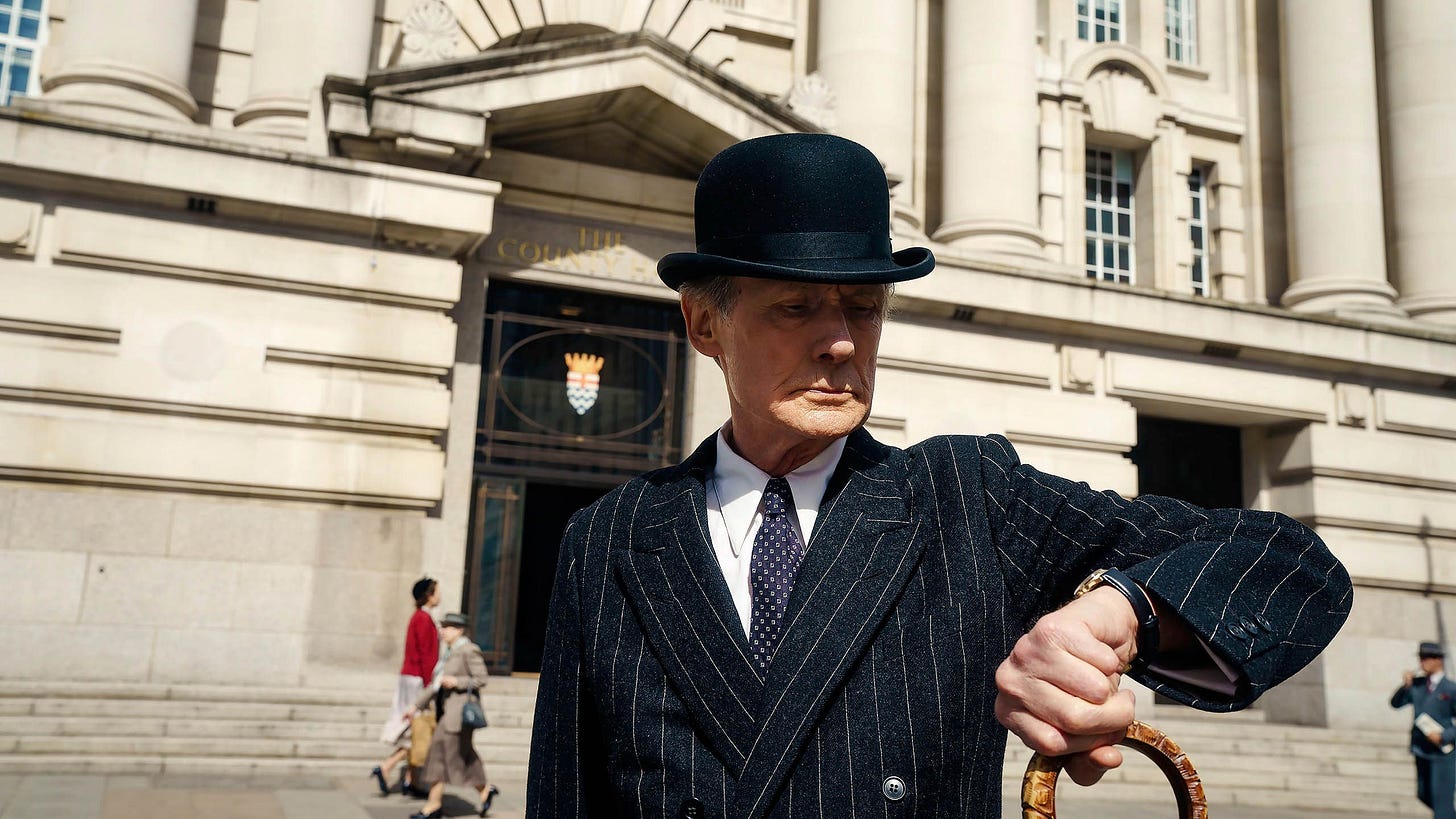

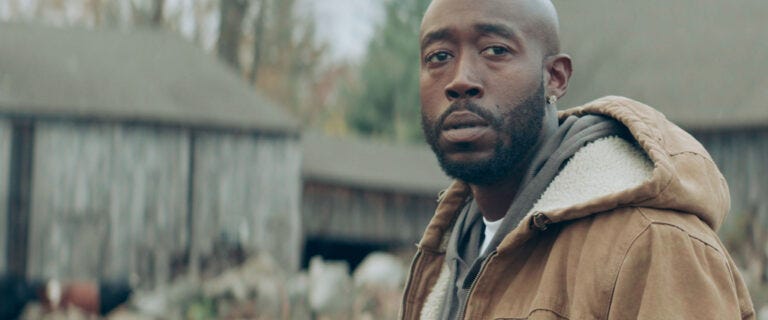


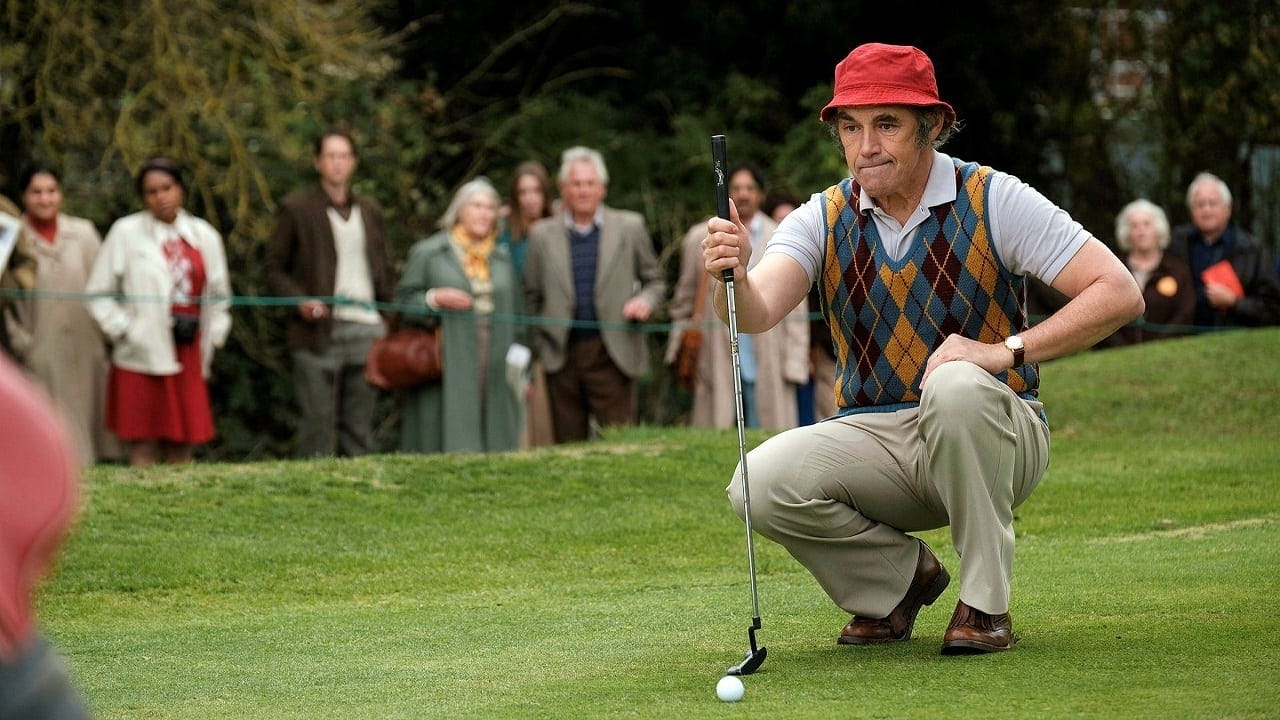



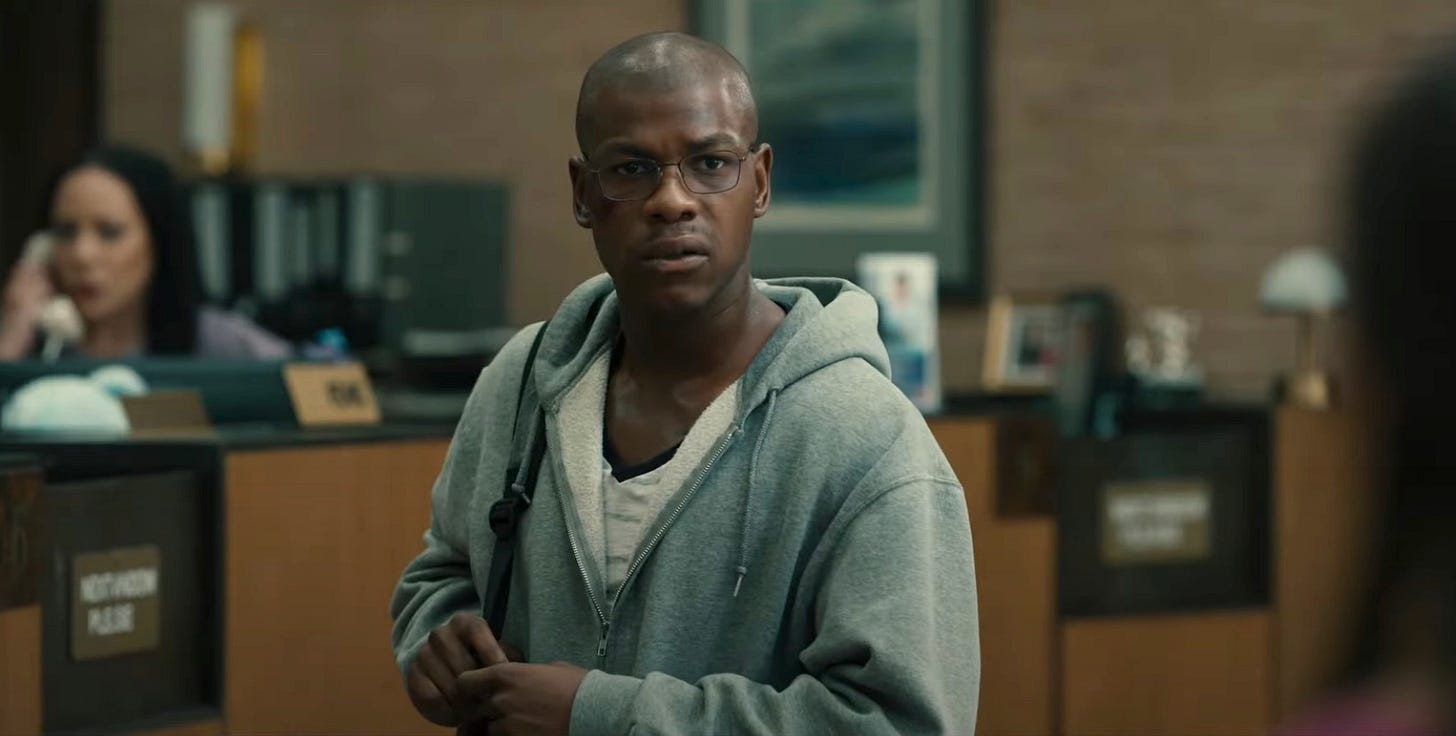


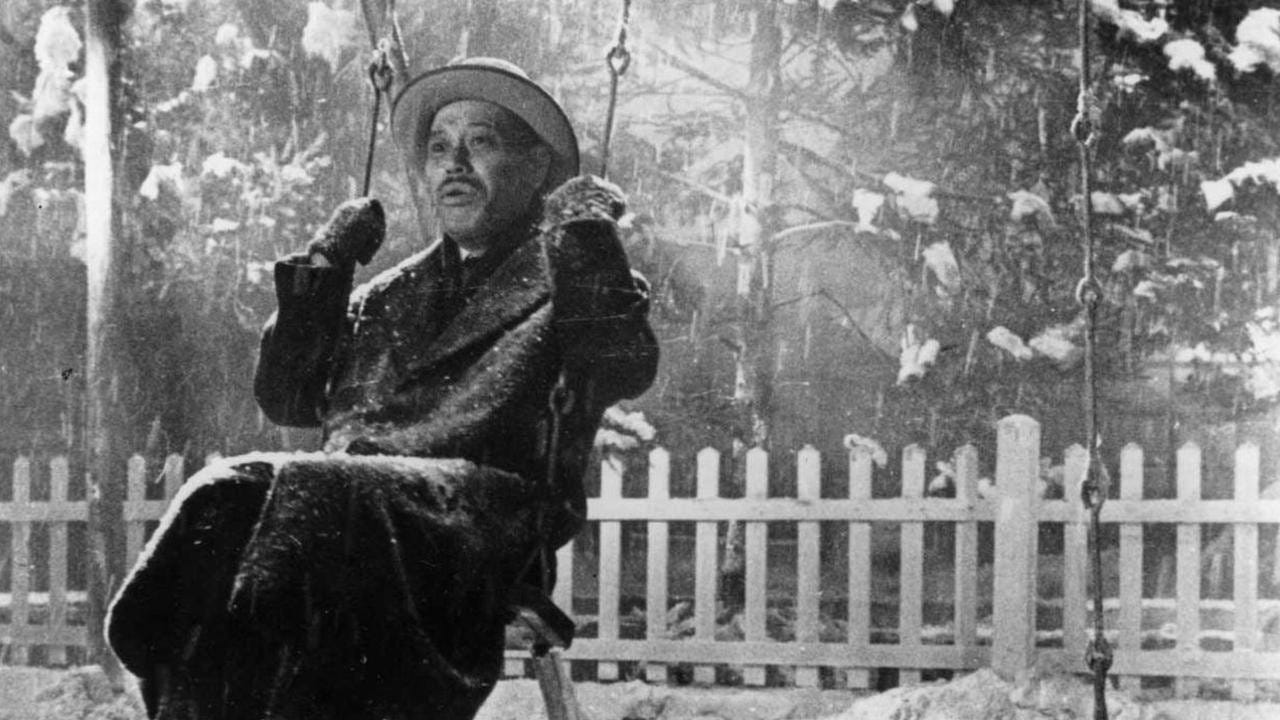
good humor in the beginning with your inarguably final list of best movies. I think some of the movies nominated are worthy. However I love your list. I don’t know many of the titles but I am looking forward to watching them. Surprising list, well written reviews.